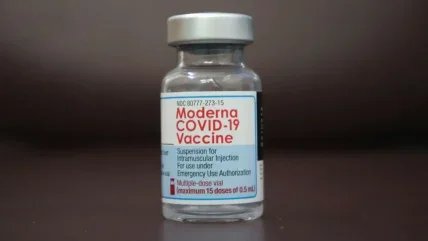
Moderna and Cenra Healthcare, the sales and marketing arm of Cenra, have signed a joint agreement to co-promote the former’s messenger RNA (mRNA) respiratory vaccine portfolio in Taiwan.
The agreement includes Moderna’s Covid-19 vaccine, Spikevax. However, financial details of the agreement have not been disclosed.
Under the terms of the agreement, Moderna will be responsible for manufacturing and distributing its mRNA vaccines. On the other hand, Cenra Healthcare will focus on promotion and medical education to expand access to these vaccines across Taiwan.
The initial term of the agreement is set to be 31 July 2027.
Moderna’s mRNA platform has helped develop several drugs and vaccines for infectious diseases, immuno-oncology, rare diseases, and autoimmune illnesses.
Last month, the Taiwan Food & Drug Administration (FDA) approved an updated formulation of Spikevax, targeting the SARS-CoV-2 variant JN.1.
Moderna Taiwan general manager Joyce Lee said: “We are committed to advancing public health initiatives across Taiwan, and this partnership will enable us to expand our educational efforts around our Covid-19 vaccine and future portfolio, especially as respiratory diseases continue to pose a global threat.”
Cenra Healthcare, which was founded in 2004, focuses on meeting the diverse needs of individuals in Taiwan and beyond. The company specialises in distributing pharmaceuticals and healthcare products to increase access and affordability for all.
Cenra Healthcare general manager Lucas Lin said: “With our leading market presence and deep understanding of Taiwan’s healthcare landscape, along with Moderna’s world-class mRNA vaccines, Cenra Healthcare is well-equipped to support Taiwan’s immunisation programmes by ensuring access through seamless collaboration with healthcare providers and communities.”
In July, Moderna partnered with Mitsubishi Tanabe Pharma for the co-promotion of its mRNA respiratory vaccines in Japan.
In a separate development, the American pharma major announced the dosing of the first US patient in the Phase 3 Nova 301 trial.
The randomised, observer-blind, placebo-controlled trial will assess the efficacy, safety, and immunogenicity of the investigational norovirus vaccine, mRNA-1403.
Global recruitment for the Nova 301 trial is now underway.
The trial aims to feature nearly 25,000 participants aged 18 and older and approximately 20,000 participants aged 60 and older, along with 5,000 participants aged 18 to 59 globally.
Nova 301 will assess the vaccine’s ability to protect against moderate to severe norovirus acute gastroenteritis (AGE) in adults.






